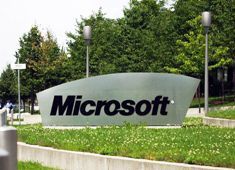A look into factors that distinguish Microsoft from Infosys.
 Between 2000, when Steve Ballmer became the chief executive officer of Microsoft, and now, when he has announced his retirement, the company’s earnings have more than doubled and its revenues have increased over three-fold.
Between 2000, when Steve Ballmer became the chief executive officer of Microsoft, and now, when he has announced his retirement, the company’s earnings have more than doubled and its revenues have increased over three-fold.
Ballmer can take the credit for strengthening Microsoft’s Windows operating system and Office productivity software businesses.
Yet, he leaves behind a string of failures: search engine Bing and other internet projects; the Zune music player; the Surface tablet; and the Kin phone.
Even now, over two-thirds of Microsoft’s profit comes from Windows, Office and others of the like.
For some time now, investors have demanded that the company should stop investing in loss-making ventures and give that money to shareholders through a bonus share issue, and should focus on the Windows and Office franchises.
In fact, it is being speculated that Mr Ballmer’s sudden exit may have been prompted by lobbying by activist investors ValueAct Capital Management.
To find Mr Ballmer’s successor, Microsoft has appointed a committee that is headed by John Thompson, an independent director.
This committee has given itself one year to find a new CEO for the company. Some experts have said that it will help if Microsoft gets an outsider as CEO because that will bring in some fresh thinking into the company.
A notable absence among the various names that have
That of Bill Gates, co-founder and former CEO. Compare this with what happened at Infosys.
The Indian information technology major was missing guidance after guidance.
Its attrition rate was the highest amongst its peers, pointing to low morale of its employees.
It got overtaken by Cognizant in size, and its stock was hammered.
But that did not affect its CEO, S D Shibulal, also a promoter of the company.
Instead, N R Narayana Murthy, the senior-most promoter, was brought back as executive chairman to salvage the situation for Infosys.
Along with Mr Murthy came his son, Rohan Murty, although Infosys had in the past said that the founders would never send their children to work for the company.
Meanwhile, Ashok Vemuri, who headed Infosys’ North American operations and served on its board, has quit.
He was a front runner to become the company’s next CEO.
One news report, quoting an email from Mr Murthy, indicates that Mr Vemuri felt his chances were slim, 33 per cent at best, and at least 18 to 20 months away, and that’s why he quit.
Writing for this newspaper after Mr Murthy’s return, T V Mohandas Pai -- its former CFO and head of human resources, and a one-time CEO aspirant -- said that this ‘culture of a founder-led and founder-centric governing model’ had cost the company ‘three generations of leaders over the past 25 years’.
Infosys, he added, had at least 100 leaders who could become CEOs.
“They need to be given their day in the sun.”
Those fears are now turning out to be true.












